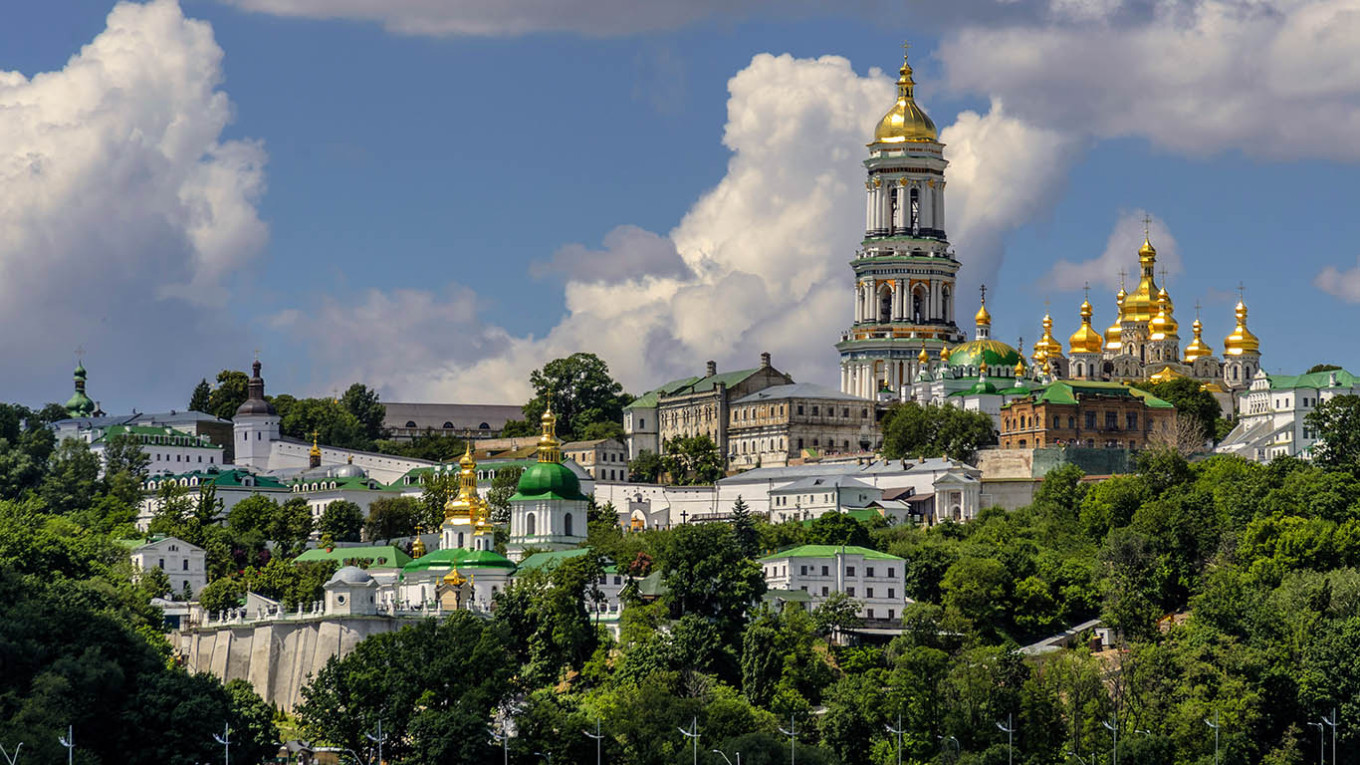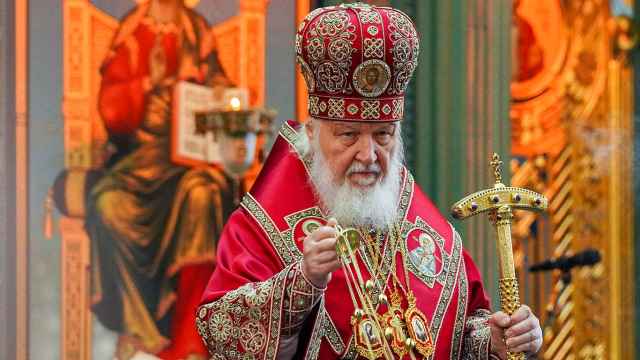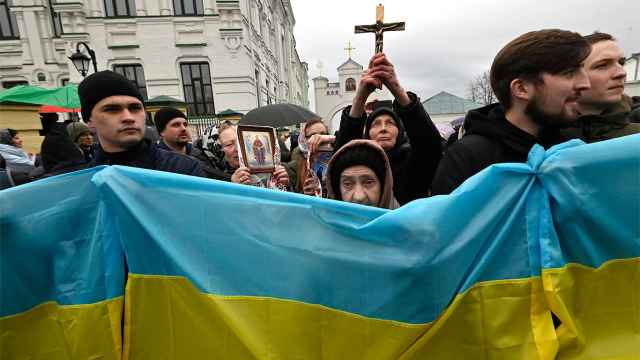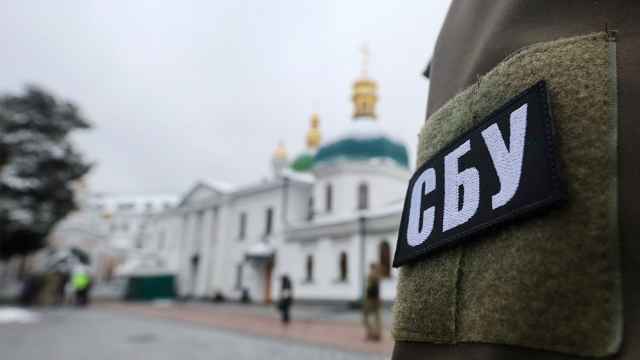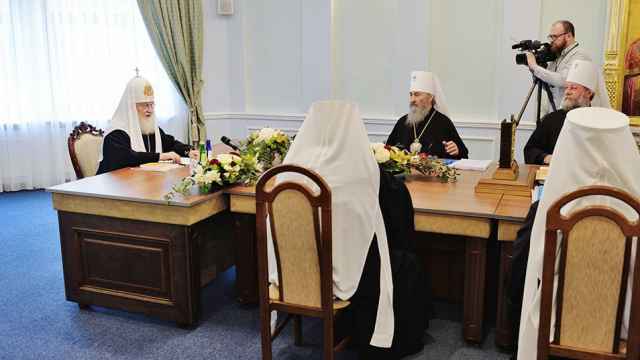Ukrainian lawmakers on Tuesday voted to ban the Ukrainian Orthodox Church as Kyiv continues to sever religious, social and institutional ties with entities it believes are aligned with Moscow.
Ukraine has for years sought to limit its religious connections with Russia — a process greatly accelerated by Moscow's 2022 invasion, which was endorsed by the influential Russian Orthodox Church.
On Tuesday, 265 lawmakers in Ukraine's Verkhovna Rada voted to pass legislation outlawing religious organizations with suspected ties to Russia, including the Ukrainian Orthodox Church.
The bill needed 226 votes to pass in the 450-seat parliament. Forty-nine seats are vacant due to Russia's occupation of eastern Ukrainian territories and the departure or removal of lawmakers.
Tuesday's vote in the Ukrainian parliament was welcomed by President Volodymyr Zelensky's office.
"There will be no Moscow Church in Ukraine," Andriy Yermak, Zelensky's chief of staff, said on Telegram. The bill now needs Zelensky's signature for it to become law.
First Deputy Chairwoman of the Verkhovna Rada, Iryna Herashchenko, called the vote "historic" and a "matter of national security."
The Ukrainian Orthodox Church, which officially broke ties with the Russian Orthodox Church in 2022, has been accused by some lawmakers of maintaining covert connections with Russian clergy despite the ongoing war.
In 2019, the Istanbul-based head of the Eastern Orthodox Church granted the Orthodox Church of Ukraine — a breakaway faction — religious independence from the Moscow Patriarchate. The split was triggered by Russia’s annexation of Crimea in 2014 and the war between Kyiv and Moscow-backed separatists in eastern Ukraine.
Despite the schism, many parishes and worshippers continued to follow the church with suspected links to Moscow.
Russian Foreign Ministry spokeswoman Maria Zakharova condemned the Verkhovna Rada's vote on Tuesday, accusing Ukraine of trying to "destroy true Orthodoxy."
A Message from The Moscow Times:
Dear readers,
We are facing unprecedented challenges. Russia's Prosecutor General's Office has designated The Moscow Times as an "undesirable" organization, criminalizing our work and putting our staff at risk of prosecution. This follows our earlier unjust labeling as a "foreign agent."
These actions are direct attempts to silence independent journalism in Russia. The authorities claim our work "discredits the decisions of the Russian leadership." We see things differently: we strive to provide accurate, unbiased reporting on Russia.
We, the journalists of The Moscow Times, refuse to be silenced. But to continue our work, we need your help.
Your support, no matter how small, makes a world of difference. If you can, please support us monthly starting from just $2. It's quick to set up, and every contribution makes a significant impact.
By supporting The Moscow Times, you're defending open, independent journalism in the face of repression. Thank you for standing with us.
Remind me later.


